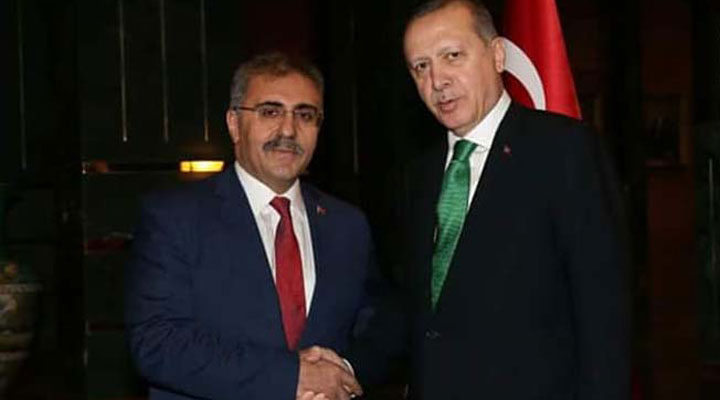Turkish President Recep Tayyip Erdoğan’s chief advisor, Veysel Bektaş, was among 11 new members elected by Turkey’s Council of Judges and Prosecutors (HSK) to the country’s Supreme Court of Appeals, Turkish media reports said on Friday.
Bektaş, who was appointed Erdoğan’s chief advisor in August 2018, previously came to public attention for allegations of nepotism.
It was revealed in local media earlier this year that his brother, Mehmet Bektaş, was the head of Çorum’s general provincial council, while his nephew Zafer Bektaş was provincial director for environment and urbanization and niece Sümeyra Şengül the provincial director of culture and tourism, also in Çorum.
The council also appointed three new members to the Council of State, including Esat Toklu, the controversial chief of the Ankara Regional Administrative Court, according to local media.
Sedat Peker, the head of one of Turkey’s most powerful mafia groups who made shocking revelations earlier this year about state-mafia relations, drug trafficking and murders implicating state officials and their family members, alleged that it was Toklu who annulled a decision to revoke Sezgin Baran Korkmaz’s passport.
Korkmaz, who was involved in a money-laundering scheme in the US and accused of involvement in large-scale corruption in Turkey, was arrested in Austria on June 19 on a US warrant. It turned out that Korkmaz had also defrauded the US Treasury and illegally transferred tens of millions of dollars to Turkey.
Peker also claimed that Toklu “became rich” over the past five years due to extorting assets belonging to members of the Gülen movement, a faith-based group accused by the Turkish government of orchestrating an attempted coup on July 15, 2016.
Erdoğan has been targeting followers of the Gülen movement since the corruption investigations of December 17-25, 2013, which implicated then-Prime Minister Erdoğan, his family members, and his inner circle.
Dismissing the investigations as a Gülenist coup and conspiracy against his government, Erdoğan designated the movement as a terrorist organization and began to target its members. He intensified the crackdown on the movement following the abortive putsch that he alleged Gülen to have orchestrated, an accusation strongly denied by the cleric as well as the group.
Erdoğan and his Justice and Development Party (AKP) government are harshly criticized for destroying the separation of powers in the country and creating their own judiciary, which acts on orders from Erdoğan.

